Restricted Substance List (RSL) Testing
Business Challenge
In today’s highly complex and changing consumer market place, manufacturers and retailers need to be confident that the products they deliver to market meet consumer expectations a long with the required safety, regulatory and government standards globally.
The need to meet these objectives in crucial. Non-complaint products risk being recalled. Poor quality products can result in consumer dissatisfaction and product returns. Both can negatively impact brand image.
What is restricted substance List testing
Restricted substances Lists (RSL) testing helps manufacturers and retailers ensure their products comply with the fast-changing regulations and standards that govern which kind of chemicals and substances can be used in products.
RSL testing involves putting product through a range of laboratory test to ascertain which substances are used in the product, as well as reviewing the manufacturers’ product notes.
Benefits of an RSL testing
• The RSL is a practical tool to help alert you business as to whether the chemicals and materials are used in your product are permitted.
• It enables you to control the use of these substances in your own processes, as well as those of supplier and retailer across your supply chain.
Scope of RSL Testing
• Textile finished products
• Apparel
• Home textile
• Denim
RSL Testing Instruments
• Gas chromatography- mass spectrometry
• High performance Liquid chromatography
• Atomic absorption spectroscopy
• UV-Vis NIR spectroscopy
RSL Testing Avialble at NTU
• Formaldehyde in textile (ISO-14184-I.II)
• Formaldehyde in textile (JIS L 104 1-A.B)
• Alkyle phenol (Aps) in Textile
• Heavey Metal Analysis on AAS (Al, CA, Cu, Fe, Mg, Si, Zn, Ag, Cr, Ni, Pb)
Customer Benefits
• Product comply with the global legislation.
• Targeted substances are limited or eliminated.
• To enable sustainable product innovation
সূত্র: নেট থেকে সংগৃহিত।
তারিখ: ডিসেম্বর ৩১, ২০২১
রেটিং করুনঃ ,



